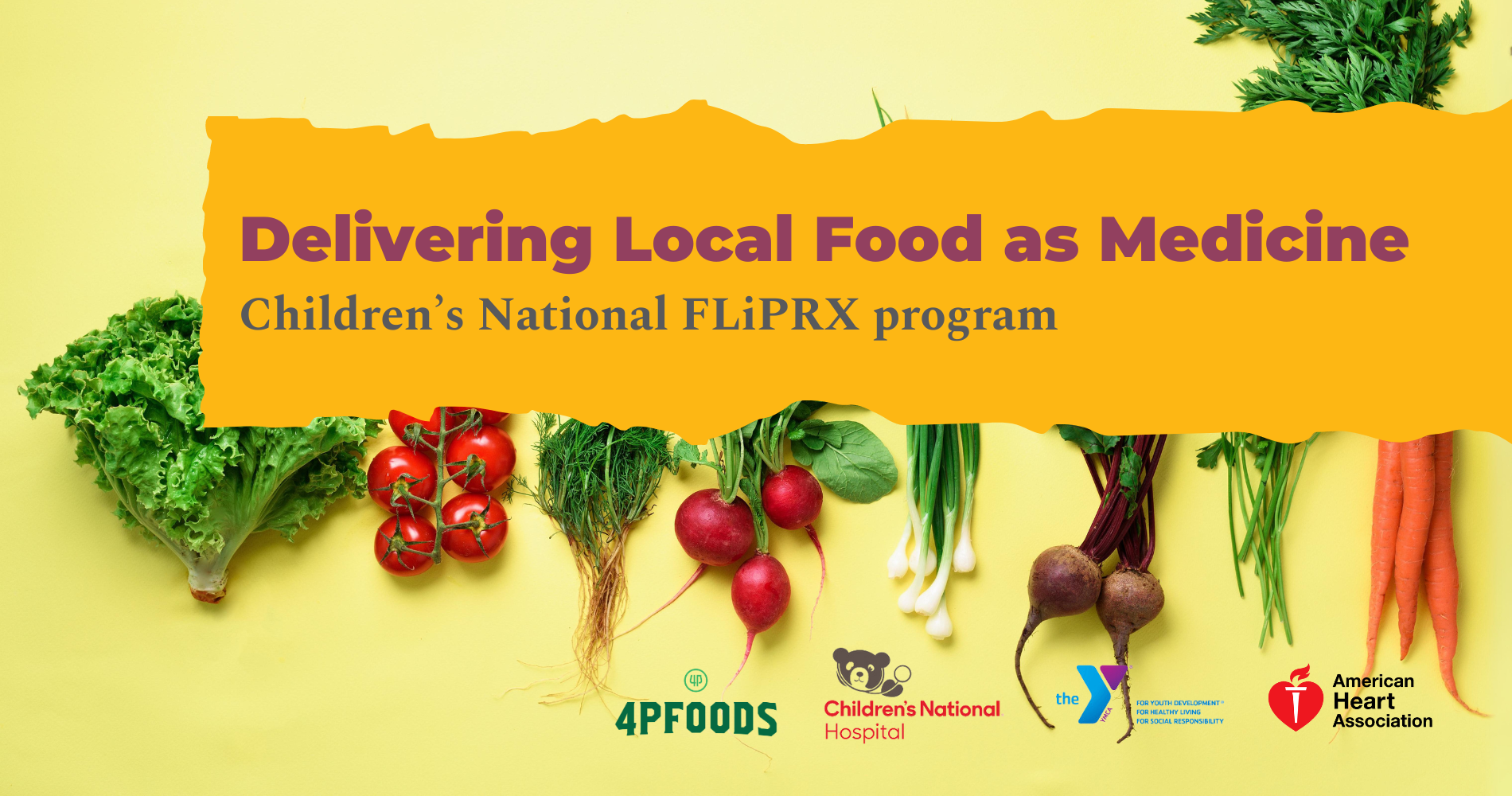
Delivering Local Food as Medicine: Children’s National FLiPRX program
April 02, 2024 by 4P Foods
Prescribing healthy food to at-risk individuals is predicted to have meaningful health and economic benefits. A Tufts University study, for example, found that Medicare/ Medicaid subsidies for fresh fruits and vegetables could prevent 300,000+ premature deaths from cardiovascular disease and save $40B in total lifetime healthcare costs.
Sourcing locally for Food-is-Medicine
Positive Economic Benefits
Many of these growers qualify as socially-disadvantaged farmers and the positive economic benefit these programs have on the local farms and the surrounding rural communities is meaningful.
More Nutrient Dense
Nutrients decrease as fruits and vegetables age after harvest. By reducing the time between harvest and consumption, local food is healthier and more flavorful.
Reduced Food Miles
4P Foods ensures that the locally-grown food travels dozens of miles versus the typical thousands of miles for industrially sourced food. This is not only better for our planet but means that there is less risk of contamination.
Sourcing locally for Food-is-Medicine positively impacts farmers like Rosa Nuñez and her husband, Carlos Ordaz who came to the US from Mexico. They originally settled in California where they worked as agricultural laborers. In 2017, they were able to secure 135 acres from the Dodd family and start Rosa’s Garden.
“We’re one of the very few minority-owned farms, especially in the Latin American community,” Carlos Jr. said.
The family is now committed to expanding its growing season, maintaining their devotion to high-end, high-yield farming, and providing high quality fruits and vegetables to the community.
Children’s National FLiPRX program
In 2021, Children’s National Hospital partnered with 4P Foods, the American Heart Association and YMCA of Metropolitan Washington to launch a pilot program to improve diet quality among food insecure families in Washington DC. Clinicians refer children aged 0-18 (and an adult caregiver) who are food insecure and have diet-related chronic disease risk. Enrolled families receive twice-monthly produce deliveries from 4P Foods directly to their homes as well as corresponding virtual nutrition education.
Since the start of the pilot, 4P Foods has delivered more than 4.5K grocery totes filled with locally sourced produce to 500 families.
“[This program] definitely introduced some things that I wouldn’t have purchased and eaten, and then it gave me ideas of how to make different dishes healthier,” explains one FLiPRX program participant.
Initial survey results shows the program has positively impacted:
- availability of produce and influenced healthy eating
- improved healthy food purchasing
- changed preparation and consumption of health food at home
Children’s National is now looking to scale this program to more families and study its sustained impact.